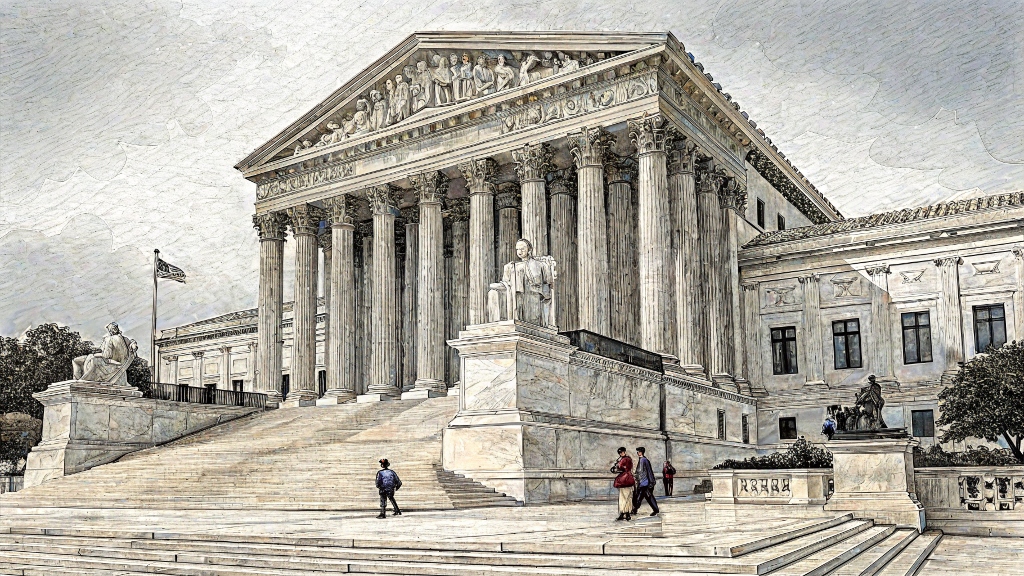
Justices to Decide Fate of Digital Wallet Privacy Rights in Historic 2025 Review
In a move that could redefine the boundaries of personal privacy and digital rights in the United States, the U.S. Supreme Court has agreed to hear a landmark case centered on the privacy of cryptocurrency wallets. The outcome of this case is expected to have sweeping implications for millions of Americans who own digital assets, as well as for law enforcement agencies, financial institutions, and technology companies navigating the rapidly evolving world of blockchain and decentralized finance.
The Case at a Glance: Digital Privacy in the Crypto Era
At the heart of the case is the question: Do Americans have a constitutional right to privacy over the contents and transactions of their cryptocurrency wallets? The case, officially titled Doe v. United States, arises from a 2023 federal investigation in which law enforcement accessed a suspect’s crypto wallet data without a warrant, citing the third-party doctrine and the public nature of blockchain ledgers.
The defendant, known only as John Doe, argues that accessing detailed transaction histories and wallet addresses without judicial oversight constitutes an unreasonable search and seizure under the Fourth Amendment. The federal government, on the other hand, maintains that blockchain transactions—being publicly recorded—do not carry a reasonable expectation of privacy and that accessing wallet data is analogous to reviewing bank records.
Why This Case Matters: Setting a Precedent for Digital Asset Privacy
The Supreme Court’s decision to take up the case comes at a critical moment for the cryptocurrency industry. With more than 65 million Americans now owning digital assets and blockchain technology underpinning a growing share of global finance, the question of privacy rights in the digital realm has never been more urgent.
Legal experts, privacy advocates, and crypto industry leaders are watching closely. A ruling in favor of wallet privacy could set a powerful precedent, protecting individuals from warrantless government surveillance and reinforcing the foundational principles of financial autonomy and civil liberties. Conversely, a ruling that limits privacy rights could open the door to expanded government monitoring and new regulatory mandates for crypto platforms.
The Arguments: Privacy, Transparency, and Law Enforcement
The Defense:
Doe’s legal team argues that cryptocurrency wallets are fundamentally different from traditional bank accounts. While blockchain ledgers are public, the identities behind wallet addresses are typically pseudonymous. Linking a wallet to a real person often requires additional investigation, such as subpoenaing exchanges or analyzing transaction patterns.
The defense contends that accessing wallet data without a warrant exposes not only the suspect’s financial history but also the activities of unrelated third parties, violating the privacy of innocent individuals. They cite recent Supreme Court rulings on digital privacy, such as Carpenter v. United States (2018), which held that accessing cell phone location data requires a warrant due to the sensitive nature of the information.
The Government:
Federal prosecutors argue that the transparency of blockchain technology is a feature, not a bug. Since transactions are publicly recorded and accessible to anyone, there is no reasonable expectation of privacy. The government likens blockchain analysis to observing someone’s movements in public or reviewing business records held by third parties.
Prosecutors also emphasize the importance of blockchain analytics in combating money laundering, terrorism financing, and cybercrime. They warn that requiring warrants for every wallet search would hamper law enforcement’s ability to investigate and prosecute digital asset crimes.
Industry and Advocacy Group Reactions
The case has galvanized a broad coalition of stakeholders, from civil liberties organizations to crypto industry groups.
- Electronic Frontier Foundation (EFF): The EFF has filed an amicus brief supporting Doe, arguing that digital wallets contain a wealth of sensitive data and deserve robust Fourth Amendment protections. “Just as the Supreme Court recognized the privacy of cell phones, it must recognize the privacy of digital wallets,” the EFF stated in its filing.
- Blockchain Association: Industry leaders warn that undermining wallet privacy could stifle innovation and drive users to less secure, offshore platforms. “Americans shouldn’t have to choose between using cutting-edge technology and retaining their constitutional rights,” said the association’s executive director.
- Law Enforcement Groups: Organizations representing prosecutors and police have urged the Court to balance privacy with public safety, noting the growing use of cryptocurrencies in illicit activities.
The Broader Context: Crypto, Privacy, and the Law
The Supreme Court’s review comes amid a surge in legislative and regulatory activity around digital assets. Congress is considering several bills that address crypto privacy, anti-money laundering (AML) requirements, and the responsibilities of exchanges and wallet providers. Meanwhile, state legislatures are debating their own protections and reporting mandates.
Globally, the case is being watched as a bellwether for how democracies will balance privacy and transparency in the age of digital money. The European Union’s Markets in Crypto-Assets Regulation (MiCA) and the United Kingdom’s Financial Conduct Authority have both implemented rules that require wallet providers to collect and share user data under certain circumstances, sparking debates over privacy and surveillance.
Potential Outcomes and Their Impact
Legal analysts suggest several possible outcomes:
- A Ruling for Privacy: The Court could require law enforcement to obtain a warrant before accessing wallet data, setting a new standard for digital privacy and possibly prompting Congress to update relevant laws.
- A Ruling Against Privacy: The Court could side with the government, affirming the public nature of blockchain data and granting law enforcement broad authority to conduct warrantless searches.
- A Narrow Ruling: The Court might issue a limited decision, applying different standards depending on whether a wallet is custodial (held by an exchange) or non-custodial (controlled directly by the user).
Each scenario would have far-reaching implications for how Americans use, store, and protect their digital assets.
What This Means for Crypto Users
For everyday crypto users, the outcome of Doe v. United States could determine the level of privacy they can expect when transacting on public blockchains. A strong privacy ruling would reinforce the notion that digital assets are an extension of personal property, deserving the same protections as cash or personal documents. It would also influence how wallet providers, exchanges, and blockchain analytics firms handle user data and cooperate with law enforcement.
On the other hand, a ruling that limits privacy could lead to increased surveillance, new compliance burdens for the industry, and greater caution among users concerned about the confidentiality of their financial activities.
The Road to the Supreme Court: Timeline and Next Steps
Oral arguments in Doe v. United States are scheduled for October 2025, with a decision expected by mid-2026. In the lead-up to the hearing, advocacy groups, tech companies, and legal scholars are preparing briefs and public campaigns to shape the national conversation.
As the Supreme Court weighs the balance between privacy and transparency in the digital age, the eyes of the world will be on Washington. The outcome of this case will not only define the future of crypto wallet privacy but also set the tone for how constitutional rights are applied to emerging technologies for years to come.














